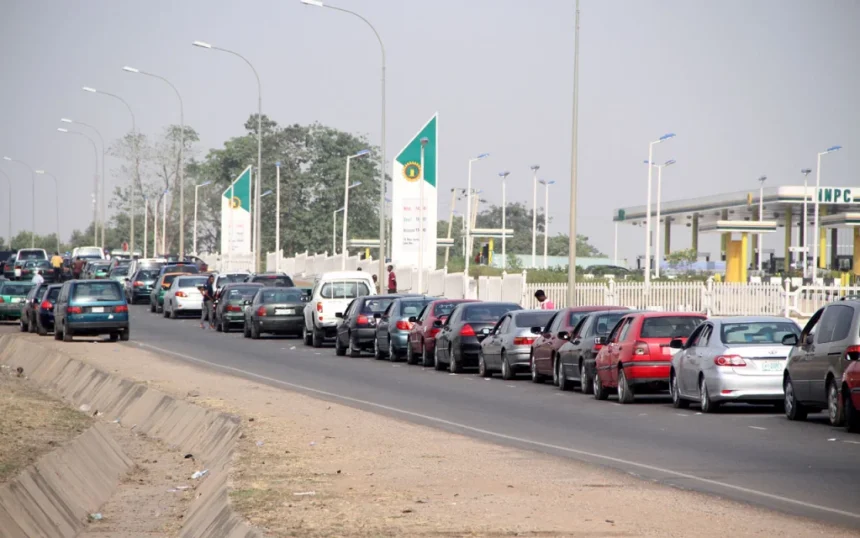According to Group Chief Executive Officer of NNPC Mele Kyari, the Nigerian National Petroleum Company Limited is in negotiations for another loan backed by oil to strengthen its finances and permit investment in its operations. According to people with knowledge of the matter, the oil company wants to use the new loan proposal to raise at least $2 billion.
Recall that,NNPC stated in August 2023 that it has acquired a $3.3 billion emergency loan from the African Export-Import Bank to repay crude oil. The national oil firm is planning to increase its crude-backed loans to $5.3 billion when the $3.3 billion loan is added to the recently planned $2 billion loan.
As of Tuesday at press time, reporters were unable to find out how much of the $3.3 billion loan had been returned by the oil corporation. Reuters claimed on Tuesday that Kyari stated that the company was seeking a fresh loan in relation to its daily output of between 30,000 and 35,000 barrels of crude oil, but he did not specify how much money was being used.
This took place on Tuesday when queues for Premium Motor Spirit, also known as gasoline, continued to form in Abuja and the surrounding states as well as in Lagos, the commercial hub of Nigeria.
Marketers blamed this on NNPC’s lack of supplies, as they are the only company importing PMS into Nigeria.
Other companies stopped importing the product due to their inability to access the US dollars.
In an effort to prevent the scenario from becoming harmful to Nigeria’s oil industry, marketers also cautioned NNPC against collecting debts backed by crude.
Additionally, according to Reuters, NNPC’s debt to gasoline suppliers has increased to $6 billion over the past four months. Olufemi Soneye, however the NNPC spokesperson, refuted this claim.
Soneye had responded to the Reuters allegation by saying, “False. Did they name the marketers they claim we supposedly owe? Let them name them.”
Since years of underinvestment and pipeline theft have reduced oil production, the cost of fuel subsidies has further reduced cash reserves. Nigeria’s government finances are primarily dependent on the oil that the NNPC exports, which also provides the majority of the country’s vital foreign exchange reserves.
President Bola Tinubu has been fighting to enact changes in the largest oil exporter in Africa, such as doing away with fuel subsidies and letting the naira trade near market rates, without driving the nation’s population over the edge of destitution due to rising living expenses.
While Kyari acknowledged that NNPC was looking for a loan secured by its daily output of between 30,000 and 35,000 barrels of crude oil, the company did not disclose the exact amount of funding it is requesting. He declared that all of NNPC’s commercial operations, including bolstering production growth, would be funded by the money obtained.
“We have no trouble covering our petrol bills. This is just money for normal business and not a desperate act,” Kyari told Reuters.
He said that he anticipated closing the purchase in the next two months. “It will be a syndication with critical but regular partners who have been in business with our company to forward the cash,” he said.
Although NNPC already had a $3.3 billion oil-backed loan through Afreximbank, five sources claimed that the company’s cash flow problems were worsened by the rising cost of fuel subsidies and that the additional loan would enable it to settle those bills.
Three sources claimed that Afrexim would not be able to increase its exposure to Nigeria to that extent, thus it is unclear which lender would arrange the loan. Since none of the five persons who talked with Reuters had the authority to speak publicly about the matter, all requested anonymity.
Because of the past-due invoices, some oil trading houses have already ceased to participate in NNPC’s gasoline tenders, as their corporations no longer permit them to be exposed to such levels of risk in Nigeria.
Shortly after taking over last year, Tinubu ordered the elimination of expensive gasoline subsidies, which caused pump prices to quadruple. Subsidies have been a burden on Nigeria’s economy for a long time; detractors claim they are an ineffective instrument that only helps wealthy, urban automobile buyers.
However, NNPC set a cap on average fuel prices a year ago at slightly over N600/litre due to the pain of double-digit inflation; since then, the price has risen and the naira has depreciated, pulling it further from market values.
Last week, as gasoline marketers in Abuja stopped selling, fuel lines started to form in Lagos, According to sources, stations would not make money if they sold at the limited prices because the ex-depot price in Lagos is more than N700 per liter.
In the upcoming weeks, the 650,000-barrel-per-day Dangote refinery on the outskirts of Lagos plans to start manufacturing gasoline and open a new tab. However, the refinery would be hesitant to sell at a loss inside Nigeria or wait months for payments from the NNPC because it has loans and feedstock costs in US dollars.
According to the sources, pressure on the government to raise pump prices has increased, but officials are anticipated to be cautious because of the tragic protests in Kenya that caused the government to rescind its intentions to raise taxes.
Billy Gillis-Harry, President of the Petroleum Products Retail Outlets Owners Association of Nigeria, responded to the fuel supply situation in Nigeria and the proposed loan by NNPC by saying that although the national oil company was making great efforts to clear the backlog, marketers were still anticipating products from the company.
“NNPC has assured us that they are working hard to tackle the fuel supply issues. So we are expecting products from them because as you know, NNPC is still the sole importer of PMS into Nigeria, and that has been a challenge,” Billy stated.
While acknowledging that “it is true that they need the funds to grow investments, they must be sure that in the long run it would be of benefit and not detrimental to the oil sector,” the president of PETROAN gave the oil business wise advice over the proposed burden.
The NNPCL declared on August 17, 2023, that it had obtained a $3.3 billion emergency loan from the African Export-Import Bank to repay crude oil.
It had stated at the time that the oil corporation would use the loan to help the Federal Government stabilize the value of Nigerian Naira.
Reporters also revealed in June of this year that Afrieximbank had given the Federal Government a $925 million lifeline to support the foreign exchange market and fulfill its dollar obligations.
According to the source, Afreximbank announced a $925 million extra disbursement under the NNPC-sponsored syndicated $3.3 billion crude oil-backed prepayment facility.
Among other things, the facility will support NNPC, help the Federal Government meet some of its dollar obligations, and aid the Central Bank of Nigeria stabilize the foreign exchange market.
With the accordion payment from Afreximbank to Project Gazelle Funding Limited, the overall funded facility amount increased to $3.175 billion.
Through the accordion arrangement, which was organized and managed by Afreximbank, a group of crude oil off-taker lenders, including but not limited to the Oando Group and Sahara Energy Resource Limited, raised a total of $925 million.
NNPC said, “This is a financing agreement secured by NNPC Limited to prepay future royalties and taxes to the Federal Government,” in the paper titled, “Everything you need to know about the NNPC Limited’s $3.3bn loan, also known as Project Gazelle.”
The business added that in order to lessen the default risk and maintain financial stability, it set a lower price benchmark for the $3.3 billion crude-for-cash loan.
The facility was utilizing a conservative crude price of $65/barrel to determine the allocated crude to be produced and sold in the future, according to the firm, which provided specifics on the benchmark oil price.
“This provides a safety margin for price fluctuations in the future..NNPC Limited has reserved up to 90,000 barrels of crude for Project Gazelle, ensuring sufficient cash flow for repayment and other financial obligations.
“If oil prices rise, more money will come in from selling the 90,000 barrels, allowing for faster repayment. However, if oil prices fall, the repayment may be slower.
“The quantity of crude earmarked (90,000 barrels) is sized to ensure enough cash is available for the repayment of the facility when it is due. This also ensures that NNPC Limited can meet other cash flow obligations, considering the expected future price of crude oil globally,” it stated.
Additionally, according to NNPC, repayments were well thought out and linked to future oil sales, with cautious contract pricing reducing the risks brought on by fluctuations in oil prices.




